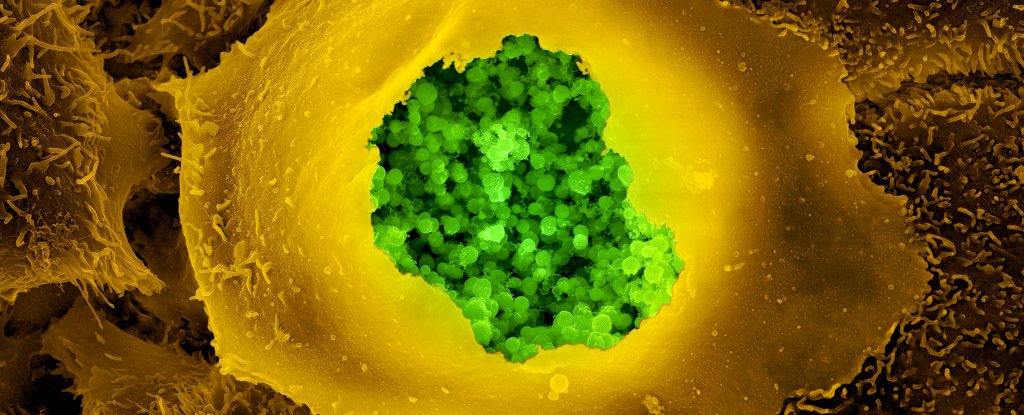Cause, Treatment, Cure -- Theoretically
"We are closing in on what could actually cause the problem. The public should embrace that and feel that we can start to do something about it."
Brian Balin, neuropathologist, The Philadelphia College of Osteopathic Medicine
"Alzheimer's is ripe for a breakthrough, which I will predict is going to come in [this area of research]."
Annelise Barron, professor of bioengineering, Stanford University
"The World Health Organization has declared Alzheimer's disease a priority. If we can find the link, we can help a lot of people."
"This is the reason more of us [in medical science] are trying to do something."
Judith Miklossy, Swiss researcher, Alzheimer International Foundation and International Alzheimer Research Center, Switzerland
 |
| Chlamydia bacteria. Image: ZEISS Microscopy/Flickr |
There are, however, other researchers who are convinced that they are on another, unproven track that may very well yield results in the efforts to understand the cause and possible cure of Alzheimer's. A body of scientific research appears to point to microbes as a possible cause of the disease, and the ubiquitous herpes virus is regarded by these believers as one of the links.
Should a proven link arise between microbes and Alzheimer's it could ultimately develop in hopes for treatments, even a cure, at the very time when the medical world remains puzzled over the growing prevalence of Alzheimer's. This is known as the pathogen theory, one that some leading researchers feel confident will eventually lead to increased scientific knowledge and a breakthrough in treatment.
The followers of the microbe-Alzheimer's connection have faced scientific skepticism from their peers, since what they believe does not fall within the sphere of the dominant theory that the cause of Alzheimer's is the accumulation of plaque-forming beta-amyloid and tangles in the brain. But it is the belief that these are side effects by Alzheimer's-microbe researchers, caused by infection or the body's immune response, not reflective of the root cause of Alzheimer's.
 |
| In this July 29, 2013 photo, a researcher holds a human brain in a laboratory at Northwestern University's cognitive neurology and Alzheimer's disease centre in Chicago. SCOTT EISEN / CP |
Such a reversal in focus could lead to vaccines and improved diagnostics, leading to earlier treatment, they suggest. Despite their efforts to convince colleagues that their theory and data collected auger for a change in investigative tactics, the supporters of the Alzheimer's-microbe link experience outsider status as far as Alzheimer's research is concerned. But they remain determined to forge ahead.
 |
| Characteristics of Alzheimer's disease in the brain. Image by National Institute on Aging/NIH |
Labels: Alzheimer's, Bioscience, Health, Research

0 Comments:
Post a Comment
<< Home